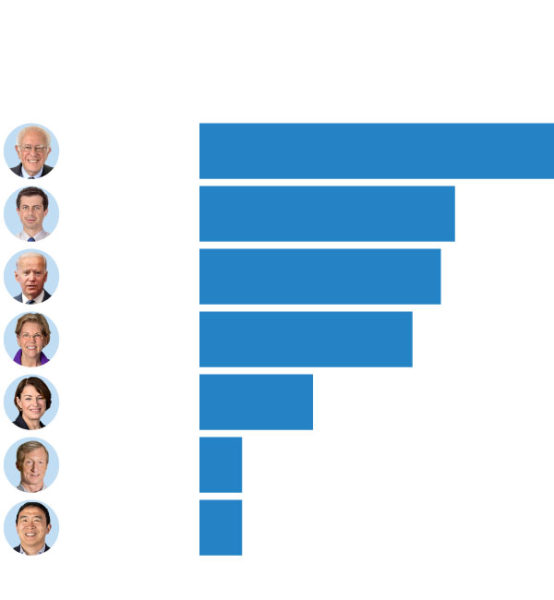Elections for the Utah Board of Education can be partisan, the Utah Supreme Court ruled Wednesday, overturning a lower court’s decision and reinstating a 2016 law that will see education candidates vying for the nominations of political parties beginning next year.
Lawmakers had intended for school board elections to become partisan in 2018. But a group of former board members and education advocacy organizations challenged the law in court, arguing that it violated a prohibition on “religion or partisan tests” for school employment, included in Utah’s constitution.
On Wednesday, justices with the state’s high court rejected those arguments and sided with the state, ruling that while “ambiguity may exist,” members of the state school board are not included in the category of education employees and are therefore not subject to that language.
The court did not consider whether a partisan election is a “partisan test or qualification,” as critics of the law had argued.
Utah Supreme Court Ruling by The Salt Lake Tribune on Scribd
The Utah Board of Education is composed of 15 members who are elected to four-year terms, with elections occurring on a two-year cycle during even-numbered years.
Prior to 2016, when that bill passed, school board candidates were screened by an appointed committee and placed on the ballot by the governor. That law was struck down in 2014 on constitutional grounds.
Proponents of partisan elections argue that party mechanisms were needed to adequately vet school board candidates. Opponents — including the Utah Parent Teacher Association, the Alliance for a Better Utah Education Fund and current state school board member Carol Lear — worried such a process would lead to an educational system driven by a single political ideology that could influence curriculum and policy in state schools.
Lear, reached Wednesday evening for comment about the court’s decision, called it “disappointing.” She declined to say more, noting that she hadn’t yet read the ruling in its entirety.
Article continues below
In a statement, Josh Kanter, board chairman of the Better Utah Institute, said the organization continues to believe that “partisan politics has no place in our schools” but expressed respect for the court’s decision.
“We have always believed that our children’s education should be insulated from the extreme partisanship that grips our nation and is making inroads into our state,” he said in a news release, pointing out that the justices did not make a judgment on “whether or not the law is good public policy.”
“A majority of Utahns believe that school board elections should not be partisan,” he concluded, citing a 2015 Utah Policy poll on the subject. “Moving forward from this decision, we ask lawmakers to listen to their constituents and restore nonpartisan school board elections before the 2020 elections.”
Much of the Supreme Court’s decision rested on an analysis of the definition of employment to determine whether school board members should be covered by the prohibition against “religion or partisan tests.”
Justices used intuition and databases to consider the real-world use of the phrase, which they found generally refers to “some sort of legal, employment relationship” characterized often by wages or salary rather than a simple provision of services, according to the opinion.
“This general pattern of common usage suggests that Board members are separate from employees and consistently applies the State’s understanding of the term employment as involving some measure of being under direction and control,” the court noted.
Board members are not under contract with the state’s education systems and aren’t paid by the state’s education systems, the court said. They are elected by and accountable to constituents, who can’t hire, fire or supervise board members after election, making them “representatives of, rather than employees of, their constituents.”
While the court acknowledged some ambiguity around definitions, it also came down on the side of the state “under the presumption that legislative enactments are assumed to be constitutional.”
The Legislature believed board members were exempt from the section of the constitution prohibiting religious or partisan tests and, the court wrote, “We see no real proof that this reading was incorrect and therefore defer to the Legislature’s interpretation.”
Associate Chief Justice Thomas Lee, in a separate opinion, concurred with the court’s ultimate decision but took issue with the way it got there, arguing that the court’s presumption of constitutionality — the “linchpin” of its opinion in the face of ambiguity — “is not articulated with any specificity.”
“Nowhere does the court identify the degree of ambiguity that is sufficient to trigger the presumption of constitutionality, or, in other words, the level of deference we owe to the Legislature,” Lee wrote.
“I am uncomfortable with this level of imprecision,” he continued. “Without a clear statement of the standard of deference we owe to the Legislature, we open the door to the risk of arbitrary decision-making. And we deprive the parties of a clear statement of the real basis for our decision.”
The Utah Attorney General’s office could not be reached for an immediate response on the outcome of the case Wednesday night.
— Tribune reporter Benjamin Wood contributed to this article
Editor’s note: Utah Supreme Court Justice John Pearce is the husband of Salt Lake Tribune Editor Jennifer Napier-Pearce.



